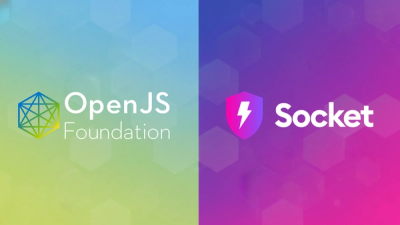
Research
SANDWORM_MODE: Shai-Hulud-Style npm Worm Hijacks CI Workflows and Poisons AI Toolchains
An emerging npm supply chain attack that infects repos, steals CI secrets, and targets developer AI toolchains for further compromise.
notion-client
Advanced tools

notion-sdk-py is a simple and easy to use client library for the official Notion API.
It is meant to be a Python version of the reference JavaScript SDK, so usage should be very similar between both. 😊 (If not, please open an issue or PR!)
pip install notion-client
Use Notion's Getting Started Guide to get set up to use Notion's API.
Import and initialize a client using an integration token or an OAuth access token.
import os
from notion_client import Client
notion = Client(auth=os.environ["NOTION_TOKEN"])
In an asyncio environment, use the asynchronous client instead:
from notion_client import AsyncClient
notion = AsyncClient(auth=os.environ["NOTION_TOKEN"])
Make a request to any Notion API endpoint.
from pprint import pprint
list_users_response = notion.users.list()
pprint(list_users_response)
[!NOTE] See the complete list of endpoints in the API reference.
or with the asynchronous client:
list_users_response = await notion.users.list()
pprint(list_users_response)
This would output something like:
{'results': [{'avatar_url': 'https://secure.notion-static.com/e6a352a8-8381-44d0-a1dc-9ed80e62b53d.jpg',
'id': 'd40e767c-d7af-4b18-a86d-55c61f1e39a4',
'name': 'Avocado Lovelace',
'object': 'user',
'person': {'email': 'avo@example.org'},
'type': 'person'},
...]}
All API endpoints are available in both the synchronous and asynchronous clients.
Endpoint parameters are grouped into a single object. You don't need to remember which parameters go in the path, query, or body.
my_page = notion.data_sources.query(
**{
"data_source_id": "897e5a76-ae52-4b48-9fdf-e71f5945d1af",
"filter": {
"property": "Landmark",
"rich_text": {
"contains": "Bridge",
},
},
}
)
If the API returns an unsuccessful response, an APIResponseError will be raised.
The error contains properties from the response, and the most helpful is code.
You can compare code to the values in the APIErrorCode object to avoid
misspelling error codes.
import logging
from notion_client import APIErrorCode, APIResponseError, Client
try:
notion = Client(auth=os.environ["NOTION_TOKEN"])
my_page = notion.data_sources.query(
**{
"data_source_id": "897e5a76-ae52-4b48-9fdf-e71f5945d1af",
"filter": {
"property": "Landmark",
"rich_text": {
"contains": "Bridge",
},
},
}
)
except APIResponseError as error:
if error.code == APIErrorCode.ObjectNotFound:
#
# For example: handle by asking the user to select a different data source
#
...
else:
# Other error handling code
print(error)
The client emits useful information to a logger. By default, it only emits warnings and errors.
If you're debugging an application, and would like the client to log request & response
bodies, set the log_level option to logging.DEBUG.
import logging
from notion_client import Client
notion = Client(
auth=os.environ["NOTION_TOKEN"],
log_level=logging.DEBUG,
)
You may also set a custom logger to emit logs to a destination other than stdout.
Have a look at Python's logging cookbook
if you want to create your own logger.
Client and AsyncClient both support the following options on initialization.
These options are all keys in the single constructor parameter.
| Option | Default value | Type | Description |
|---|---|---|---|
auth | None | string | Bearer token for authentication. If left undefined, the auth parameter should be set on each request. |
log_level | logging.WARNING | int | Verbosity of logs the instance will produce. By default, logs are written to stdout. |
timeout_ms | 60_000 | int | Number of milliseconds to wait before emitting a RequestTimeoutError |
base_url | "https://api.notion.com" | string | The root URL for sending API requests. This can be changed to test with a mock server. |
logger | Log to console | logging.Logger | A custom logger. |
The following functions can distinguish between full and partial API responses.
| Function | Purpose |
|---|---|
is_full_page | Determine whether an object is a full Page object |
is_full_block | Determine whether an object is a full Block object |
is_full_data_source | Determine whether an object is a full Data source object |
is_full_page_or_data_source | Determine whether an object is a full Page object or Data source object |
is_full_user | Determine whether an object is a full User object |
is_full_comment | Determine whether an object is a full Comment object |
from notion_client.helpers import is_full_page
full_or_partial_pages = notion.data_sources.query(
data_source_id="897e5a76-ae52-4b48-9fdf-e71f5945d1af"
)
for page in full_or_partial_pages["results"]:
if not is_full_page_or_data_source(page):
continue
print(f"Created at: {page['created_time']}")
This package also exports a few utility functions that are helpful for dealing with any of the paginated APIs.
iterate_paginated_api(function, **kwargs)This utility turns any paginated API into a generator.
Parameters:
function: Any function on the Notion client that represents a paginated API
(i.e. accepts start_cursor.) Example: notion.blocks.children.list.**kwargs: Arguments that should be passed to the API on the first and
subsequent calls to the API, for example a block_id.Returns:
A generator over results from the API.
Example:
from notion_client.helpers import iterate_paginated_api
for block in iterate_paginated_api(
notion.blocks.children.list, block_id=parent_block_id
):
# Do something with block.
...
collect_paginated_api(function, **kwargs)This utility accepts the same arguments as iterate_paginated_api, but collects
the results into an in-memory array.
Before using this utility, check that the data you are dealing with is small enough to fit in memory.
Parameters:
function: Any function on the Notion client that represents a paginated API
(i.e. accepts start_cursor.) Example: notion.blocks.children.list.**kwargs: Arguments that should be passed to the API on the first and
subsequent calls to the API, for example a block_id.Returns:
An array with results from the API.
Example:
from notion_client.helpers import collect_paginated_api
blocks = collect_paginated_api(
notion.blocks.children.list, block_id=parent_block_id
)
# Do something with blocks.
Both utilities also have async versions: async_iterate_paginated_api and
async_collect_paginated_api.
To make requests directly to a Notion API endpoint instead of using the
pre-built families of methods, call the request() method. For example:
import json
# POST /v1/comments
response = notion.request(
path="comments",
method="post",
body={
"parent": {"page_id": "5c6a28216bb14a7eb6e1c50111515c3d"},
"rich_text": [{"text": {"content": "Hello, world!"}}],
},
# No `query` params in this example, only `body`.
)
print(json.dumps(response, indent=2))
[!TIP] Usually, making custom requests with
notion.request()isn't necessary, but can be helpful in some cases, e.g. when upgrading your Notion API version incrementally before upgrading your SDK version. For example, if there's a new or renamed endpoint in the new API version that isn't yet available to call via a dedicated method onClient.In the above example, the simpler approach is to use
notion.comments.create().
Another customization you can make is to pass your own httpx.Client or
httpx.AsyncClient to the Client or AsyncClient constructor. This might be
helpful for some execution environments where the default HTTPX client isn't
suitable.
Run the tests with the pytest command. If you want to test against all Python
versions, you can run tox instead.
The tests are using pytest-vcr's cassettes for simulating requests to the
Notion API. To create new tests or run them without cassettes, you need to set
up the environment variables NOTION_TOKEN and NOTION_TEST_PAGE_ID (a page
where your integration has all the capabilities enabled).
The code will use the page at NOTION_TEST_PAGE_ID to generate a temporary
environment with the Notion objects to be tested, which will be deleted
at the end of the session.
This package supports the following minimum versions:
Earlier versions may still work, but we encourage people building new applications to upgrade to the current stable.
If you want to submit a feature request for Notion's API, or are experiencing
any issues with the API platform, please email developers@makenotion.com.
If you found a bug with the library, please submit an issue.
FAQs
Python client for the official Notion API
We found that notion-client demonstrated a healthy version release cadence and project activity because the last version was released less than a year ago. It has 1 open source maintainer collaborating on the project.
Did you know?

Socket for GitHub automatically highlights issues in each pull request and monitors the health of all your open source dependencies. Discover the contents of your packages and block harmful activity before you install or update your dependencies.

Research
An emerging npm supply chain attack that infects repos, steals CI secrets, and targets developer AI toolchains for further compromise.

Company News
Socket is proud to join the OpenJS Foundation as a Silver Member, deepening our commitment to the long-term health and security of the JavaScript ecosystem.

Security News
npm now links to Socket's security analysis on every package page. Here's what you'll find when you click through.